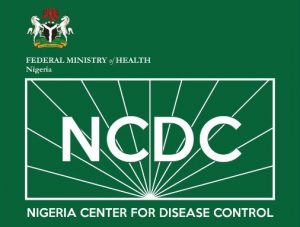Pfizer Highlights Prevalence, Social Burden Of Rheumatoid Arthritis

In a need for raising awareness about Rheumatology as well as enlightening the public about the management of rheumatoid arthritis to prevent disease progression in Nigeria and around the world.
Pfizer hosted a media roundtable with Healthcare professionals to discuss an autoimmune diseases that can cause short-term to permanent disability and highlight the disease’s burden in Nigeria.
The roundtable was held with Dr Olaosebikan Hakeem, Rheumatologist, Lagos State University College of Medicine and Dr Uyiekpan Ima-Edomwonyi, Rheumatologist, Lagos University Teaching Hospital.
While interacting with media professionals to share medical insights on the condition alongside the latest clinical advances that seek to achieve better patient outcomes.
Explaining Rheumatoid arthritis (RA) as an autoimmune disorder that affects the small joints of the body, Dr Uyiekpan Ima-Edomwonyi, Rheumatologist, Lagos University Teaching Hospital said, “Rheumatoid arthritis affects the small joints of the hand, wrist, and feet before affecting larger joints and if left untreated can cause deformity and disability. With debilitating symptoms that include pain and stiffness, people with Rheumatoid arthritis are seen to have lower functional status.
Dr Ima-Edomwonyi stated that this disability can lead to a loss of career and sources of income, which is a particular problem in low-income settings. For a certain subset of the population, jobs in Africa involve a level of manual labour and the resource-starved African states can afford only limited or no welfare support for disabled individuals.
He added that along with the increase in non–communicable diseases (NCD) in developing countries, an increase in Rheumatoid arthritis occurrence could stress medical services that are already struggling with a high burden of acute infectious illness to an extent that they may be unable to cope with the fast-changing patterns of disease distribution seen in Africa today.
However, healthcare professionals, general physicians and rheumatologists need to identify Rheumatoid arthritis early and commence appropriate therapy as soon as possible.
According to him, the Epidemiology of Rheumatoid arthritis is difficult to establish in developing countries due to very few community/population-based studies. A substantial decline in Rheumatoid arthritis incidence over time, with a shift toward a more elderly age of onset, was a consistent finding across several studies. Also notable was the virtual absence of epidemiologic data for the developing countries of the world.
Speaking on the treatment of Rheumatoid arthritis Dr Olaosebikan Hakeem, Rheumatologist, Lagos State University College of Medicine added, “Treatment of Rheumatoid arthritis is ideally done as soon as possible when the patient starts with disease symptoms, but at any stage, the aim is to get the disease into remission or to have minimal signs and symptoms.
Dr Hakeem added that this is to decrease the progression of joint disease as the disease process can cause progressive damage to joints with resultant loss of function, which in many patients, will mean that they are unable to fulfil work obligations or cope with activities at home. Adequate treatment is also important to try to prevent or lessen the severity of co-morbidities, particularly cardiovascular disease, which is still a major cause of mortality in these patients.
“Apart from treating the rheumatoid disease, the patient should ideally be treated by a multidisciplinary team to address many other associations of this disease which range from psychological help with anxiety and depression to guidance with physical therapy by physiotherapists or biokinetics and help with activities of daily living by occupational therapists.”
Dr Kodjo Soroh, Country Medical Director, Pfizer East and West Africa commented, “Rheumatoid arthritis remains one of the most common rheumatic and musculoskeletal diseases (RMDs) in the region. However, there is hope, and we aim to continue raising awareness around the treatments available today.









